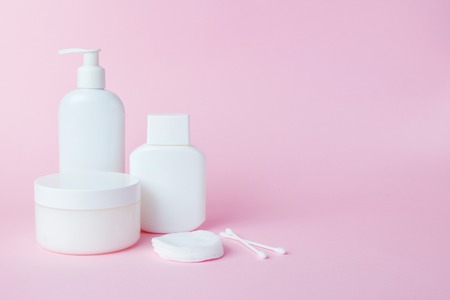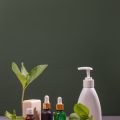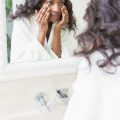Introduction to CBD-Infused Face Masks
Over the past few years, CBD-infused face masks have exploded onto the American skincare scene, promising everything from calming inflammation to hydrating stressed-out skin. But what exactly is CBD, and why are so many beauty brands adding it to their products? Cannabidiol (CBD) is a non-psychoactive compound derived from the hemp plant, celebrated for its potential anti-inflammatory and antioxidant properties. As wellness trends continue to shape consumer choices in the US, CBD has become a buzzword not just in wellness circles but also in mainstream beauty aisles. Skincare enthusiasts are increasingly drawn to products that offer natural solutions for common skin concerns, and the fusion of CBD with face masks has captured attention for its supposed ability to soothe irritation, reduce redness, and enhance overall skin health. This trend reflects a broader shift toward holistic self-care routines and plant-based ingredients—a movement that’s gaining serious momentum among American consumers seeking both efficacy and innovation in their daily skincare regimens.
How CBD Works in Skincare
Understanding how CBD-infused face masks may impact your skin starts with the basics of cannabinoid science. Cannabidiol (CBD) is one of over a hundred cannabinoids found in the hemp plant, and it’s non-psychoactive—meaning it won’t get you “high.” In the context of skincare, CBD interacts with our body through the endocannabinoid system (ECS), which is a network of receptors found throughout the body, including the skin. These receptors—primarily CB1 and CB2—are involved in regulating inflammation, sebum production, and cell growth.
The Endocannabinoid System and Your Skin
American dermatology research highlights that the ECS plays a key role in maintaining skin homeostasis. When applied topically, CBD is believed to interact with ECS receptors in the skin’s epidermis and dermis layers. This interaction may help modulate inflammatory responses and promote balance in skin function.
Proposed Benefits of CBD for Skin
| Potential Benefit | Scientific Rationale | Common US Dermatology Perspective |
|---|---|---|
| Anti-inflammatory Effect | CBD may reduce cytokine production and calm irritated skin. | Promising for acne-prone or sensitive skin types. |
| Oil Regulation | CBD might help balance sebum (oil) production. | Could be useful for oily or combination skin. |
| Antioxidant Properties | Cannabinoids can neutralize free radicals that contribute to aging. | A potential tool in anti-aging routines. |
| Soothing Sensitivity | CBD’s calming effect may ease redness and discomfort. | Sought after by those with rosacea or reactive skin. |
What Does the Science Say?
The majority of clinical studies on CBD’s effects are still in early stages, but anecdotal reports and initial findings from American dermatologists suggest that CBD could offer benefits for certain skin conditions. However, results can vary depending on concentration, product formulation, and individual skin type. Always look for third-party tested products to ensure label accuracy and safety when shopping stateside.

3. Examining the Claims: Fact vs. Hype
CBD-infused face masks have exploded in popularity across the U.S., with brands touting benefits like reduced inflammation, deep hydration, acne relief, and even anti-aging effects. But how much of this is backed by real science, and what do American dermatologists actually say? Let’s break down the most common marketing claims and see how they stack up against clinical evidence.
Claim 1: CBD Soothes Inflammation and Redness
Many brands market CBD as a miracle solution for irritated or sensitive skin, emphasizing its supposed anti-inflammatory properties. While laboratory studies suggest that cannabidiol (CBD) may help modulate inflammation at a cellular level, large-scale clinical trials on topical CBD—specifically in face masks—are still lacking. According to U.S.-based dermatologists, while some patients with conditions like eczema or psoriasis might experience mild relief from CBD products, these effects are not universal and more research is needed before making broad recommendations.
Claim 2: Deep Hydration and Skin Barrier Support
Another big selling point is that CBD face masks can deeply hydrate the skin and strengthen its barrier function. However, most hydrating effects reported by users come from other ingredients typically found in sheet masks, such as hyaluronic acid or glycerin—not CBD itself. Dermatologists point out that there’s little evidence that topical CBD alone significantly boosts hydration compared to conventional moisturizing agents.
Claim 3: Acne and Oil Control
Some American brands claim that CBD helps regulate oil production and reduces breakouts. There is some emerging data suggesting CBD can influence sebum production in lab settings. But so far, no robust clinical studies have confirmed that over-the-counter CBD-infused face masks can reliably treat or prevent acne. Most board-certified dermatologists recommend proven acne treatments—like benzoyl peroxide or retinoids—instead.
The Bottom Line: What Do U.S. Dermatologists Say?
The consensus among U.S. skin experts is cautious optimism mixed with skepticism. While there are promising signs that CBD could play a supportive role in skincare, the current hype around CBD-infused face masks far exceeds what’s been clinically validated. If you’re looking for real results, focus on established skincare ingredients and view CBD as an experimental add-on rather than a proven cure-all.
4. User Experience: What to Expect
For many American skincare enthusiasts, trying a CBD-infused face mask is all about the experience—from the moment you open the package to how your skin feels hours later. Here’s what typical users report and how these masks fit into everyday U.S. skincare routines.
Texture & Application
Most CBD face masks available in the U.S. come as either sheet masks or creamy wash-off formulas. Users often mention that CBD sheet masks are saturated with serum but don’t feel sticky or greasy—a huge plus for those who dislike heavy products. Cream-based versions tend to glide smoothly and absorb well without leaving residue.
Scent Profile
American consumers value subtlety when it comes to scent. The majority of CBD-infused masks have earthy, herbal notes, sometimes with a hint of citrus or lavender. Overly strong or medicinal smells are generally frowned upon and can be a dealbreaker for repeat purchases.
Immediate Skin Feel
| Aspect | User Feedback |
|---|---|
| Hydration | Skin feels instantly hydrated and soothed; tightness is reduced. |
| Sensitivity | Most report no irritation, even on sensitive skin types. |
| Finish | Leaves a dewy glow rather than an oily sheen. |
| Cooling Effect | A light cooling sensation is commonly noted, especially with gel-based masks. |
Integration in US Skincare Routines
CBD face masks are typically used 1-2 times per week, slotted into routines after cleansing and before moisturizing. American users appreciate that they can combine these masks with other trending products like vitamin C serums or hyaluronic acid creams without adverse effects. For those following the popular “self-care Sunday” trend, CBD-infused masks are often featured as a relaxing treat paired with candles or calming music.
5. Potential Downsides and Considerations
Despite the buzz around CBD-infused face masks, savvy American consumers should be aware of several potential downsides before adding these products to their skincare routine. First, the regulatory environment for CBD cosmetics in the US is still evolving. The FDA has not fully approved CBD as a cosmetic ingredient, which means product quality, labeling accuracy, and safety standards can vary widely between brands. Its crucial to check whether a product comes from a reputable company that provides third-party lab testing results, confirming both the amount of CBD and the absence of harmful contaminants.
Safety and Allergenicity
Like any topical product, CBD face masks can cause allergic reactions or skin irritation—especially if you have sensitive skin or allergies to other ingredients like fragrances or essential oils commonly included in mask formulas. Conducting a patch test on a small area before full-face application is always recommended. Additionally, while CBD itself is generally considered safe for most users, impurities or poorly sourced extracts could introduce risks.
CBD Sourcing and THC Content
Another important consideration is the sourcing of the CBD used in your face mask. High-quality products typically use organically grown hemp from US farms and provide Certificates of Analysis (COAs) showing cannabinoid content and confirming THC levels are below 0.3%—the federal legal limit. This matters because poorly regulated imports or mislabeled products may contain more THC than allowed, potentially causing unwanted psychoactive effects or even legal issues depending on your state.
Smart Shopping Tips for US Consumers
To avoid pitfalls, US shoppers should prioritize transparency: choose brands that openly share sourcing details and lab results. Look for clear labeling indicating whether the product contains full-spectrum, broad-spectrum, or isolate CBD—each offers different cannabinoid profiles. Be wary of exaggerated claims; while early research suggests some benefits, no topical CBD product is a miracle cure. Finally, consult with a dermatologist if you have pre-existing skin conditions or concerns about introducing new actives into your regimen.
6. Are CBD Face Masks Worth the Investment?
When it comes to deciding whether CBD-infused face masks are worth adding to your skincare routine, it’s important to weigh the cost, effectiveness, and long-term value from a realistic, US consumer standpoint.
Cost Considerations
Most CBD face masks on the American market are priced between $5 and $20 per sheet, which is significantly higher than traditional sheet masks without CBD. This premium is largely attributed to the inclusion of CBD extract and the marketing surrounding its benefits. Regular use—say, one or two masks per week—can quickly add up over a month, especially when compared with non-CBD alternatives.
Effectiveness: Hype vs. Results
While early research and anecdotal evidence suggest that CBD may help soothe inflammation and promote skin balance, there’s still limited clinical data supporting dramatic results from topical application in mask form. Many users report feeling relaxed or seeing temporary skin improvement, but these outcomes can often be matched by quality non-CBD hydrating or calming masks containing proven ingredients like hyaluronic acid or aloe vera.
Long-Term Value
For most US consumers, the long-term value of CBD face masks depends on your personal skin concerns and budget. If you have sensitive skin or want to experiment with trending wellness products, trying a few masks might be worthwhile. However, if you’re looking for lasting results like anti-aging or deep hydration, investing in a consistent routine with dermatologist-recommended products may provide more bang for your buck.
The Bottom Line
In summary, while CBD-infused face masks offer a unique self-care experience and may deliver short-term soothing effects, their higher price point and lack of robust evidence mean they’re not a must-have for everyone. American shoppers should approach these products as occasional indulgences rather than essentials and focus investment on proven skincare basics for long-term benefits.


